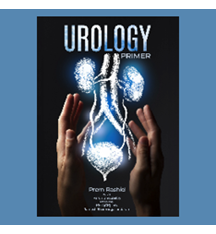2023 | Volume 24 | Issue 3

Author: Dr Sarah Rennie
After many months, if not years, of advocacy calling for action on key issues facing surgeons, it was an International Women’s Day event that unlocked communication between the Aotearoa New Zealand National Committee (AoNZNC) and senior government health officials.
Health Minister Hon Dr Ayesha Verrall was guest speaker at the RACS Aotearoa New Zealand (AoNZ) International Women’s Day (IWD) breakfast Zoom on 8 March. Her address focused on the important role women play in the AoNZ healthcare system.
The event, however, came at a time when surgeons felt the system was at crisis point. Waitlists for planned (elective) surgery were already long and workforce shortages and infrastructure issues were undermining attempts to clear the backlog. Our members, already burnt out from the pressures of COVID-19 combined with a stressed healthcare system, were expressing frustration at the situation.
They saw the IWD event as an opportunity to ensure the health minister was aware of the pressing issues for surgeons in Aotearoa. About 32 surgeons attended the online gathering including RACS immediate past president Dr Sally Langley; surgical advisors Dr Sarah Rennie and Professor Spencer Beasley; College councillors Dr Nicola Hill and Dr Maxine Ronald; AoNZ National Committee chair Associate Professor Andrew MacCormick; and head of training for OHNS, Angela Butler.
The conversation was frank and at times heated. Surgeons described the emotional burden of being the ones to front up to patients when their surgeries were deferred or cancelled. There were stories of patients being woken from general anaesthesia without having had surgery because of a lack of hospital beds; of urgent cancer care being delayed; and of poor work cultures causing resignations among vital theatre staff leading to further inabilities to provide surgical care.
The minister listened. She then extended an invitation to members of the AoNZNC to meet with her and top officials from Manatū Hauora – Ministry of Health and Te Whatu Ora –Health New Zealand.
This meeting was wide-ranging and covered topics including the shortage of anaesthetic technicians, issues of minor surgery taking precedence over cancer surgery to achieve targets on waiting lists, RACS capacity to train more surgeons, the lack of hospital beds (or staff to support them), and operating theatre capacity.
Most importantly, it laid the foundations for follow up and ongoing meetings with health officials.
The AoNZNC has met with Chief Medical Officer Dr Joe Bourne and Te Whatu Ora leadership including Fionnagh Dougan, National Director, Hospital and Specialist Services, and has quarterly meetings booked with them going forward. It also hopes to meet with representatives from the government’s Workforce Taskforce. The committee will be reaching out to representatives of RACS nine surgical specialties for input into these meetings.
The issues facing surgical services in Aotearoa are complex, nuanced and differ from region to region and specialty to specialty across the motu. As the peak body for surgery across nine specialties, RACS has a lot to offer in terms of advice and creative ideas on issues including regulation, workforce, surgical training, surgical provision, equity, sustainability and more. The AoNZNC will keep our membership posted on our progress. We cannot wait any longer to see positive change.

